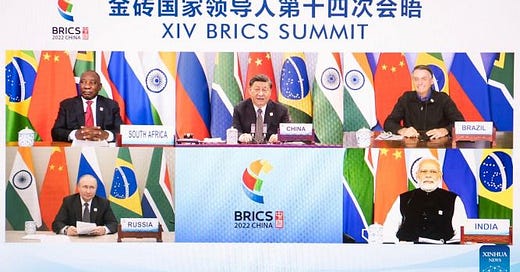The XIV BRICS Summit was held online on June 23. 2022, hosted by China. BRICS is an intergovernmental economic-commercial association formed in 2009 by Brazil, Russia, India, and China, with South Africa joining in 2010. The five countries represent 41% of the world’s population. Their economies account for 24% of the world’s Gross Domestic Product and 16% of world commerce.
An editorial by Global Times stresses BRICS’ alternative vision for a more just world economic order. “From the very beginning, the BRICS countries had a broad vision, hoping to find a more inclusive and sustainable way for humans to work together. This is groundbreaking. It also shows that by adhering to openness, inclusiveness, and win-win cooperation, we can discover a wider world.” The Global Times, founded in 2009, is an English-language newspaper located in Beijing. In its own words, “the Global Times takes great pains to present facts and views that could help the readers better understand Ch…



